BMW 7 Series vs Mercedes EQS – Differences & prices compared
Compare performance, boot space, consumption and price in one view.
Find out now: which car is the better choice for you – BMW 7 Series or Mercedes EQS?
The BMW 7 Series (Sedan) comes with a Plugin Hybrid or Diesel MHEV engine and Automatic transmission. In comparison, the Mercedes EQS (Hatchback) features a Electric engine with Automatic transmission.
When it comes to boot capacity, the BMW 7 Series offers 540 L, while the Mercedes EQS provides 610 L – depending on how much space you need. If you’re looking for more power, decide whether the 571 HP of the BMW 7 Series or the 544 HP of the Mercedes EQS suits your needs better.
In terms of consumption, the values are 1 L per 100 km for the BMW 7 Series, and 16.50 kWh for the Mercedes EQS.
Price-wise, the BMW 7 Series starts at 101300 £, while the Mercedes EQS is available from 93900 £. Compare all the details and find out which model fits your lifestyle best!
BMW 7 Series
The BMW 7 Series represents the pinnacle of luxury and performance in the executive car segment, offering an unparalleled driving experience. Its elegant design combines aesthetic appeal with advanced technology, ensuring both comfort and connectivity for its passengers. With cutting-edge driver assistance systems, this flagship model showcases the brand's commitment to innovation and safety.
details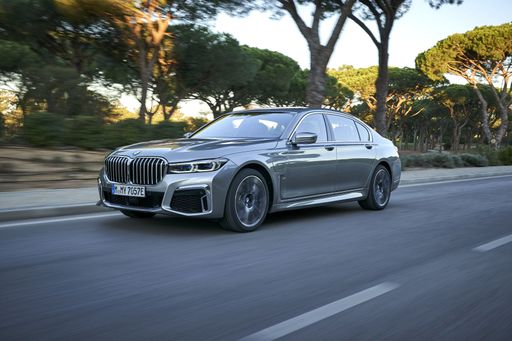 @ press.bmwgroup.com
@ press.bmwgroup.com
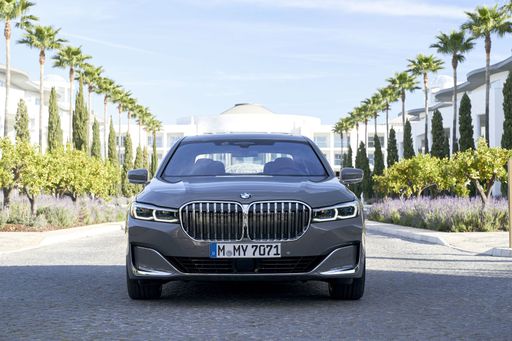 @ press.bmwgroup.com
@ press.bmwgroup.com
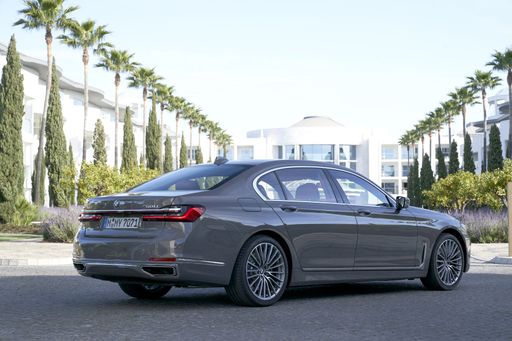 @ press.bmwgroup.com
@ press.bmwgroup.com
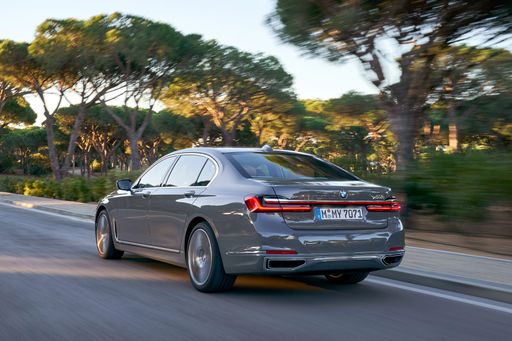 @ press.bmwgroup.com
@ press.bmwgroup.com
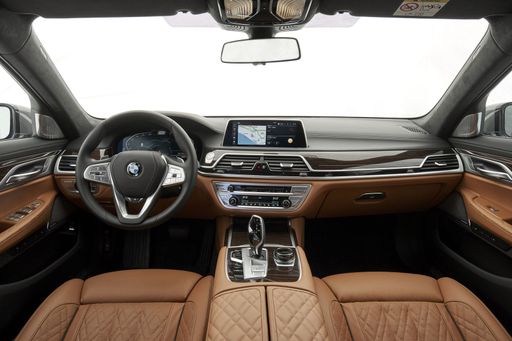 @ press.bmwgroup.com
@ press.bmwgroup.com
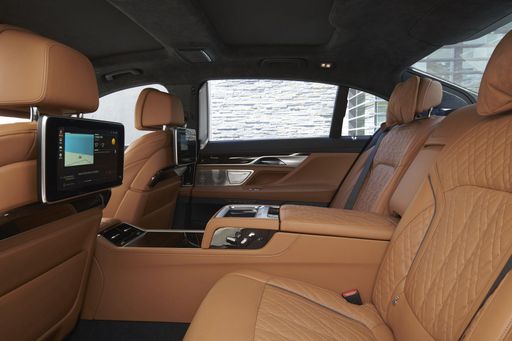 @ press.bmwgroup.com
@ press.bmwgroup.com
Mercedes EQS
The Mercedes-Benz EQS redefines luxury in the realm of electric vehicles, combining exceptional comfort with cutting-edge technology. Its sleek and aerodynamic design is a testament to both elegance and efficiency, setting new standards for the brand. Inside, the EQS offers a serene and spacious cabin equipped with the latest advancements, ensuring a refined driving experience.
details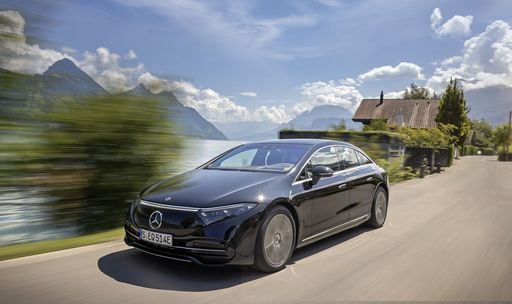 @ group-media.mercedes-benz.com
@ group-media.mercedes-benz.com
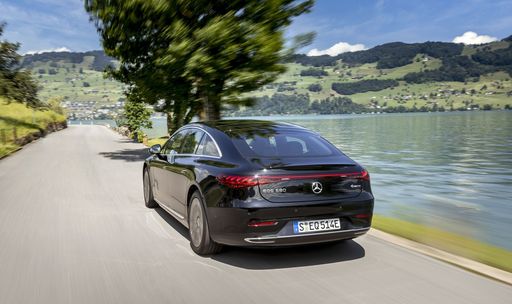 @ group-media.mercedes-benz.com
@ group-media.mercedes-benz.com
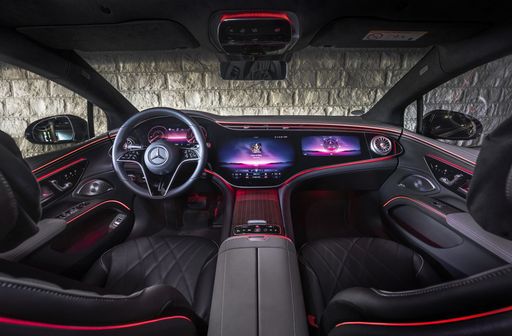 @ group-media.mercedes-benz.com
@ group-media.mercedes-benz.com
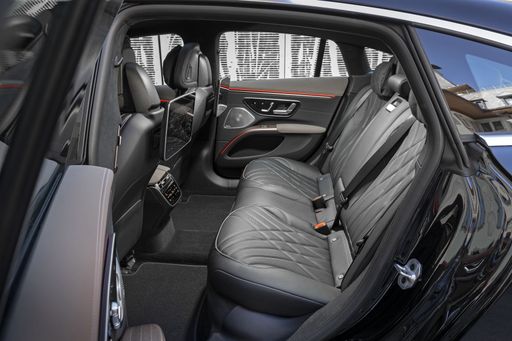 @ group-media.mercedes-benz.com
@ group-media.mercedes-benz.com
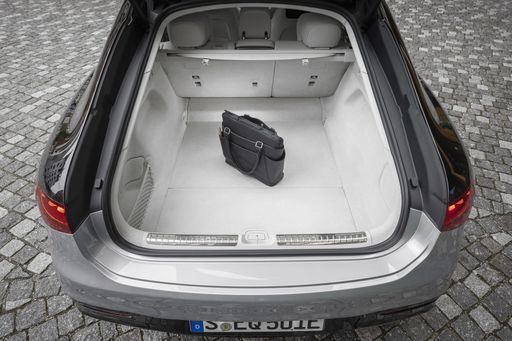 @ group-media.mercedes-benz.com
@ group-media.mercedes-benz.com

|

|
|
|
|
Costs and Consumption |
|
|---|---|
|
Price
101300 - 127300 £
|
Price
93900 - 123500 £
|
|
Consumption L/100km
1 - 6.1 L
|
Consumption L/100km
-
|
|
Consumption kWh/100km
-
|
Consumption kWh/100km
16.5 - 17.2 kWh
|
|
Electric Range
80 km
|
Electric Range
790 - 816 km
|
|
Battery Capacity
17.60 kWh
|
Battery Capacity
118 kWh
|
|
co2
23 - 160 g/km
|
co2
0 g/km
|
|
Fuel tank capacity
65 - 74 L
|
Fuel tank capacity
-
|
Dimensions and Body |
|
|---|---|
|
Body Type
Sedan
|
Body Type
Hatchback
|
|
Seats
5
|
Seats
5
|
|
Doors
4
|
Doors
5
|
|
Curb weight
2255 - 2525 kg
|
Curb weight
2545 - 2655 kg
|
|
Trunk capacity
525 - 540 L
|
Trunk capacity
610 L
|
|
Length
5391 mm
|
Length
5223 mm
|
|
Width
1950 mm
|
Width
1926 mm
|
|
Height
1544 mm
|
Height
1512 mm
|
|
Payload
605 - 665 kg
|
Payload
550 - 565 kg
|
Engine and Performance |
|
|---|---|
|
Engine Type
Plugin Hybrid, Diesel MHEV
|
Engine Type
Electric
|
|
Transmission
Automatic
|
Transmission
Automatic
|
|
Transmission Detail
Automatic Gearbox
|
Transmission Detail
-
|
|
Drive Type
All-Wheel Drive
|
Drive Type
All-Wheel Drive, Rear-Wheel Drive
|
|
Power HP
300 - 571 HP
|
Power HP
360 - 544 HP
|
|
Acceleration 0-100km/h
4.3 - 5.8 s
|
Acceleration 0-100km/h
4.4 - 6.2 s
|
|
Max Speed
250 km/h
|
Max Speed
210 km/h
|
|
Torque
670 - 800 Nm
|
Torque
568 - 858 Nm
|
|
Number of Cylinders
6
|
Number of Cylinders
-
|
|
Power kW
220 - 420 kW
|
Power kW
265 - 400 kW
|
|
Engine capacity
2993 - 2998 cm3
|
Engine capacity
-
|
General |
|
|---|---|
|
Model Year
2023 - 2024
|
Model Year
2024
|
|
CO2 Efficiency Class
B, F
|
CO2 Efficiency Class
A
|
|
Brand
BMW
|
Brand
Mercedes-Benz
|
BMW 7 Series
Introduction to the BMW 7 Series
The BMW 7 Series has long been synonymous with luxury, performance, and cutting-edge technology. The latest versions continue this tradition, integrating sophisticated hybrid technology with distinguished design and powerful performance. Whether cruising the motorway or navigating urban landscapes, the BMW 7 Series offers an exceptional driving experience.
Technical Specifications
The 2023 BMW 7 Series boasts a range of impressive specifications and features. The engine options, which include both diesel mild-hybrid and plug-in hybrid variants, provide flexibility for different driving needs. With power outputs ranging from 300 PS to a remarkable 571 PS, the 7 Series does not compromise on performance. Coupled with intelligent all-wheel drive and an automatic transmission, it assures smooth and responsive handling.
Fuel efficiency is another highlight, with the series achieving consumption figures as low as 1.1 L/100km for the plug-in hybrid models, showcasing the brand's commitment to sustainability without sacrificing performance.
Advanced Hybrid Technology
The integration of mild-hybrid and plug-in hybrid systems into the 7 Series marks a significant advancement in BMW's pursuit of greener motoring. The plug-in hybrid variants, with a battery capacity of 18.7 kWh, offer an all-electric range of up to 79 km - ideal for city driving. This hybrid setup not only reduces emissions but also enhances acceleration, delivering a swift 0-100 km/h time ranging from 4.3 to 5.8 seconds.
Luxury and Comfort
The BMW 7 Series epitomises luxury, featuring an interior designed for comfort and convenience. Standard equipment includes high-grade materials, advanced connectivity, and cutting-edge infotainment systems. The cabin is spacious, with ample room for five passengers and a generous boot capacity of up to 540 litres, ensuring that long journeys are as comfortable as they are efficient.
Safety and Innovation
Safety remains paramount in the BMW 7 Series, with an array of features designed to protect occupants and enhance driving confidence. This includes state-of-the-art driver assistance systems, which provide support in various driving conditions, thus ensuring a safer driving experience.
In conclusion, the BMW 7 Series stands as a testament to automotive innovation, blending traditional luxury with modern efficiency and performance. It's a fine choice for those who seek the pinnacle of automotive engineering and technology.
Mercedes EQS
Revolutionising Electric Mobility: The Mercedes-Benz EQS
The automobile industry is undergoing a remarkable transformation, and at the forefront of this evolution is the Mercedes-Benz EQS. As a flagship model of the German marque's electric lineup, the EQS represents the pinnacle of luxury and innovation in the sphere of electric vehicles (EVs). With its sleek silhouette, unparalleled technology, and sustainable power, the EQS promises to set new standards for luxury electric driving.
Elegant Design Meets Intelligent Engineering
The Mercedes-Benz EQS is designed with an aesthetic that reflects both futuristic vision and traditional elegance. Its elongated body, measuring 5,223 mm in length, conveys a powerful presence on the road while ensuring optimal aerodynamics. The front fascia, with its innovative LED lighting design, provides a distinctive visual signature whether the car is in motion or stationary.
Additionally, the EQS features a spacious boot with a capacity of 610 litres, ensuring practicality is not sacrificed for style. Attention to detail is evident everywhere, from the 1,926 mm wide stance that provides stability and poise to the exquisite interior craftsmanship that creates an atmosphere of refined luxury.
A Masterclass in Performance and Efficiency
Underneath its elegant exterior, the Mercedes-Benz EQS houses some of the most advanced technological innovations. It boasts an electric powertrain with a range of power outputs from 360 PS to an impressive 761 PS, thanks to its sophisticated dual-motor setup. With a maximum speed ranging between 210 and 250 km/h, the EQS ensures that electric mobility does not compromise on performance.
Efficiency is also a key player with the EQS. The model achieves an impressive energy consumption rate starting from 16.5 kWh per 100 km, empowering drivers with an electric range extending up to 816 km on a single charge. This is made possible by the vehicle’s substantial 118 kWh battery capacity, paired with advanced energy recuperation systems.
Setting New Standards for Technological Innovation
The EQS is not just about what's under the bonnet; it’s also about the cutting-edge technology that enhances every driving experience. The revolutionary MBUX Hyperscreen is a standout feature, extending across the dashboard with a seamless blend of screens, providing unparalleled interactive experiences and information at the driver's fingertips.
Safety and driver assistance are paramount, with features such as the latest generation of driving aids, ensuring both safety and convenience. The EQS is equipped with numerous sensors and AI-driven systems that effortlessly adapt to road conditions and driver behaviour, providing support and confidence in every journey.
Environmental Commitment and Cost Efficiency
With zero CO2 emissions on the road, the EQS is emblematic of Mercedes-Benz’s commitment to sustainable and environmentally friendly mobility. Furthermore, the cost-effectiveness of operating an EQS is another attractive feature, with ownership costs ranging from €2,117 to €2,827 per month, depending on the driving style and specific configuration. The EQS is not only setting a benchmark in luxury and innovation but also paving the way for a greener future.
Conclusion: The Future is Electric
The Mercedes-Benz EQS stands as a testament to the future of the automotive industry. It combines sustainability with luxurious comfort, cutting-edge technology with outstanding performance. For those seeking to make a statement and lead the charge towards an electrified motoring future, the EQS offers an unparalleled experience that is as innovative as it is inspiring.
The prices and data displayed are estimates based on German list prices and may vary by country. This information is not legally binding.
